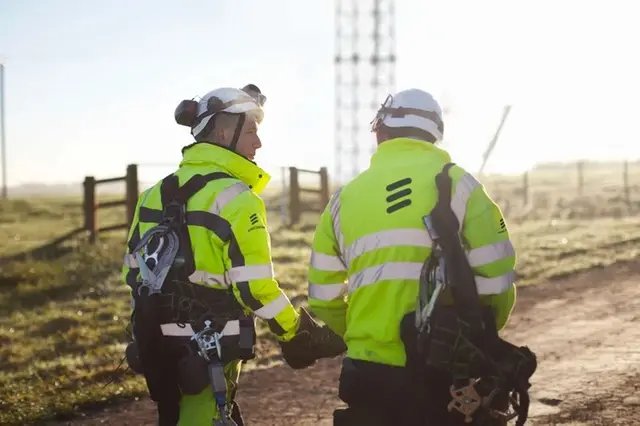Ericsson’s second round of climate action targets toward Net Zero have been approved by the Science Based Targets initiative (SBTi), it has been announced.
The company shared that it has committed to reducing emissions across the company value chain by 90 per cent by the end of 2040 – from 2020 levels.
The remaining 10 per cent it has committed to remove with approved carbon removals.
Speaking about the announcement, Heather Johnson, Head of Sustainability and Corporate Responsibility, Ericsson, says: “As a technology leader with a strong foundation in research and development, we understand our climate impacts and the importance of limiting global warming to 1.5°C. The SBTi approvals are a testament to Ericsson’s science-based approach to climate action that will ultimately benefit the company, our stakeholders and society.”
Ericsson shared that its new targets follow the company’s achievements of SBTi-approved targets in a previous round covering 2016 to 2022.
These targets were to reduce scope 1, 2 and scope 3 categories of Business Travel and Downstream Transportation emissions by 35 per cent and achieve 35 per cent energy savings in Ericsson Radio Systems compared to the legacy portfolio.
Within the target timeframe, Ericsson reduced them by 60 per cent and 39 per cent, respectively.
Approved in December 2023, the Science Based Targets initiative (SBTi) worded the approval of Ericsson’s new targets as:
Overall Net-Zero Target:
Ericsson commits to reaching net-zero greenhouse gas emissions across the value chain by FY2040 (end of 2040).
Near-Term Targets:
Ericsson commits to reducing absolute scope 1, 2 and 3 GHG (greenhouse gas) emissions 50 per cent by FY2030 (end of 2030) from a FY2020 (end of 2020) base year.
Within this target, Ericsson commits to reduce absolute scope 1 and 2 GHG emissions 90.0 per cent and absolute scope 3 GHG emissions 50.0 per cent within the same timeframe.
Long-Term Targets:
Ericsson commits to reducing absolute scope 1, 2 and 3 GHG (greenhouse gas) emissions 90 per cent by FY2040 (end of 2040) from a FY2020 (end of 2020) base year.



